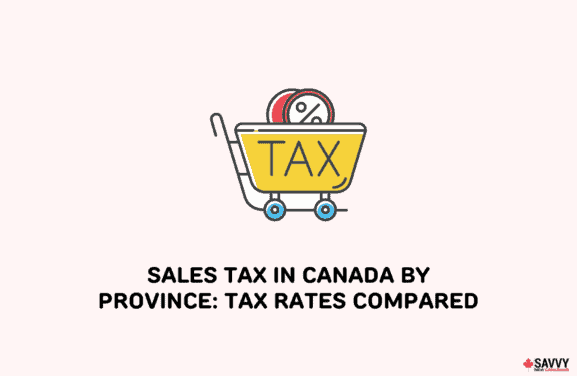Have you ever wondered who the wealthiest people in Canada are? According to Statistics Canada, the top 10% of income earners are the ones who made at least $102,400 in 2020.
This data is tracked by age, household, and income percentiles like the top 0.5%, 2%, 5%, and 30%. So, what does it really mean to be part of Canada’s top 10% income bracket? Let’s explore and find out.
Key Takeaways
- The top 10% of income earners in Canada made at least $102,400 in 2020.
- Approximately 2.8 million Canadians were in the top 10% income bracket in 2020.
- The average income for the top 10% of earners in Canada varies by province. The highest average income in Ontario is at $182,400, and the lowest in the Territories at $146,400.
- Jobs in the medical and tech industry are the highest-paying.
What is the Top 10 Percent Income In Canada?
The top 10% of income in Canada refers to the highest earners in the country, with a minimum income of $102,400 in 2020. People in this group have incomes that put them in the top tier of Canadian society.
How Many Canadians Are In the Top 10%?
According to Statistics Canada, approximately 2.8 million Canadians were in the top 10% income bracket in 2020. This represents approximately 7.5% of the Canadian population.
How Much Do the Top 10% of Earners Make?
The top 10% of earners in Canada had a minimum income of $102,400 in 2020. However, the average income for this group is much higher, at $176,700 per year.
This is over three times the average income for all Canadians, which was $50,100 in 2020.
Related: Richest families in Canada.
What Jobs Do the Top 10% Have?
The top 10% of earners in Canada are represented in a variety of industries, including finance, law, medicine, engineering, and technology.
However, it is important to note that high-income earners can be found in almost any field, and no one career path guarantees entry into the top 10%.
Here are some of the highest-paying jobs in Canada:
| Job Title | Average Salary | Description | Qualifications |
| Anesthesiologist | $358,908/year | Keeps patients unconscious and safe during surgery; expert in anesthetic drugs and pain management | Medical degree, 5-year residency in anesthesiology |
| Psychiatrist | $298,065/year | Diagnoses and treats mental health disorders; can prescribe medication | Medical degree, a residency program in mental health |
| Cardiologist | $280,591/year | Diagnoses, treats, and helps prevent cardiovascular diseases | Medical degree, 4-5 year residency, registration with the College of Physicians and Surgeons |
| Surgeon | $279,646/year | Performs surgery on patients; responsible for post-surgery care | Medical degree, 4-5 year residency, 2 years studying surgical specialty |
| Physician | $254,847/year | Treats and diagnoses medical issues in family practice, hospital, or specialized clinic | Medical degree, residency program |
| Orthodontist | $209,373/year | Specializes in treating misaligned teeth; helps in prevention and diagnosis of misaligned bite patterns | Dentistry degree, specialty license, registration with dental regulatory body |
| Software Engineering Manager | $143,044/year | Leads software programs or application development. | Bachelor’s degree in a relevant field and management experience |
| Vice President | $135,578/year | Manages the organization’s internal operations. | Varies by industry |
| Director of Information Technology | $117,890/year | Oversees the IT department of a company. | Bachelor’s degree in a relevant field and several years of IT management experience |
| Chief Marketing Officer | $109,196/year | Oversees the company’s marketing strategies and initiatives. | Bachelor’s degree in a relevant field and an MBA. |
Many of these top earners hold executive or leadership positions within their respective organizations and have significant expertise and experience in their fields.
Household Income In Canada By Percentile
The household income percentile in Canada is computed using the aggregate income of all members of a household, commonly known as a Census Family. Household income in Canada fluctuates greatly depending on the percentile in which a household falls.
As of the second quarter of 2022, the average household net worth was $940,558.
Top 10% Income In Canada By Province
The average income for the top 10% of earners in Canada varies by province.
According to Statistics Canada, the highest average income for the top 10% was in Ontario at $182,400 in 2020. The lowest average income for the top 10% was in the Territories, at $146,400 for the same period.
Refer to the following table:
| Province | Average Income of the Top 10% Earners |
| Ontario | $182,400 |
| Alberta | $177,500 |
| British Columbia | $176,600 |
| Quebec | $171,600 |
| Nova Scotia | $161,800 |
| Newfoundland and Labrador | $160,800 |
| New Brunswick | $160,200 |
| Prince Edward Island | $159,000 |
| The Territories | $146,400 |
Top 10 Percent Income In Canada By City
The top 10% of earners in Canada can also be found in various cities across the country. According to Statistics Canada, the highest average income for the top 10% was in Calgary, at $597,200. Rounding out the top ten cities for the top 10% income list is Regina at $161,200.
| City | Average Income for Top 10% Earners |
| Toronto | $199,800 |
| Calgary | $196,900 |
| Vancouver | $187,900 |
| Montreal | $181,900 |
| Victoria | $174,700 |
| Ottawa-Gatineau (ON) | $167,000 |
| Edmonton | $166,500 |
| Quebec City | $163,700 |
| Saskatoon | $164,500 |
| Regina | $161,200 |
What is the Average Canadian Income?
The average Canadian income varies depending on factors such as age, gender, and location.
According to Statistics Canada, the average income for all Canadians was $54,200 in 2020. But, this varies greatly by age, with the highest average income being for those aged 45–54, at $67,400.
FAQs
The top 5% of income earners in Canada had a minimum income of $132,300 in 2020.
In 2022, the top 20% of household income in Canada starts at an annual income of $227,486, according to a report by the Fraser Institute.
It’s hard to get an actual figure. But Statistics Canada reported that in 2021, household wealth in Canada reached $15.1 trillion as of the third quarter, with the top 20% holding more than two-thirds (67.1%) of all net worth.
Yes, an annual salary of $120,000 is considered decent pay in Canada because it is more than the country’s median income for people and households.
Related:



